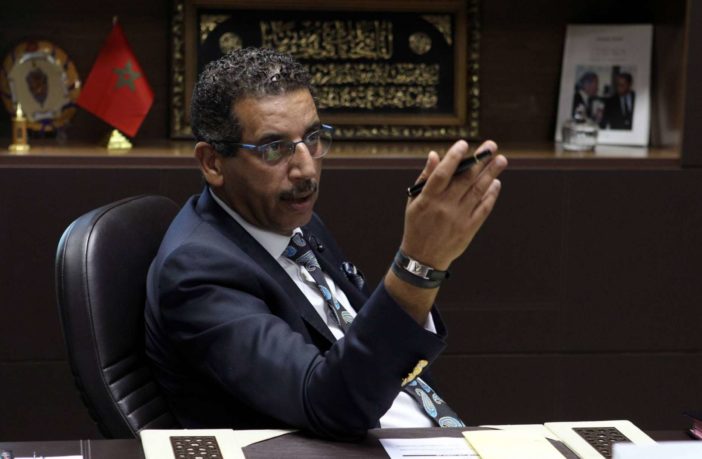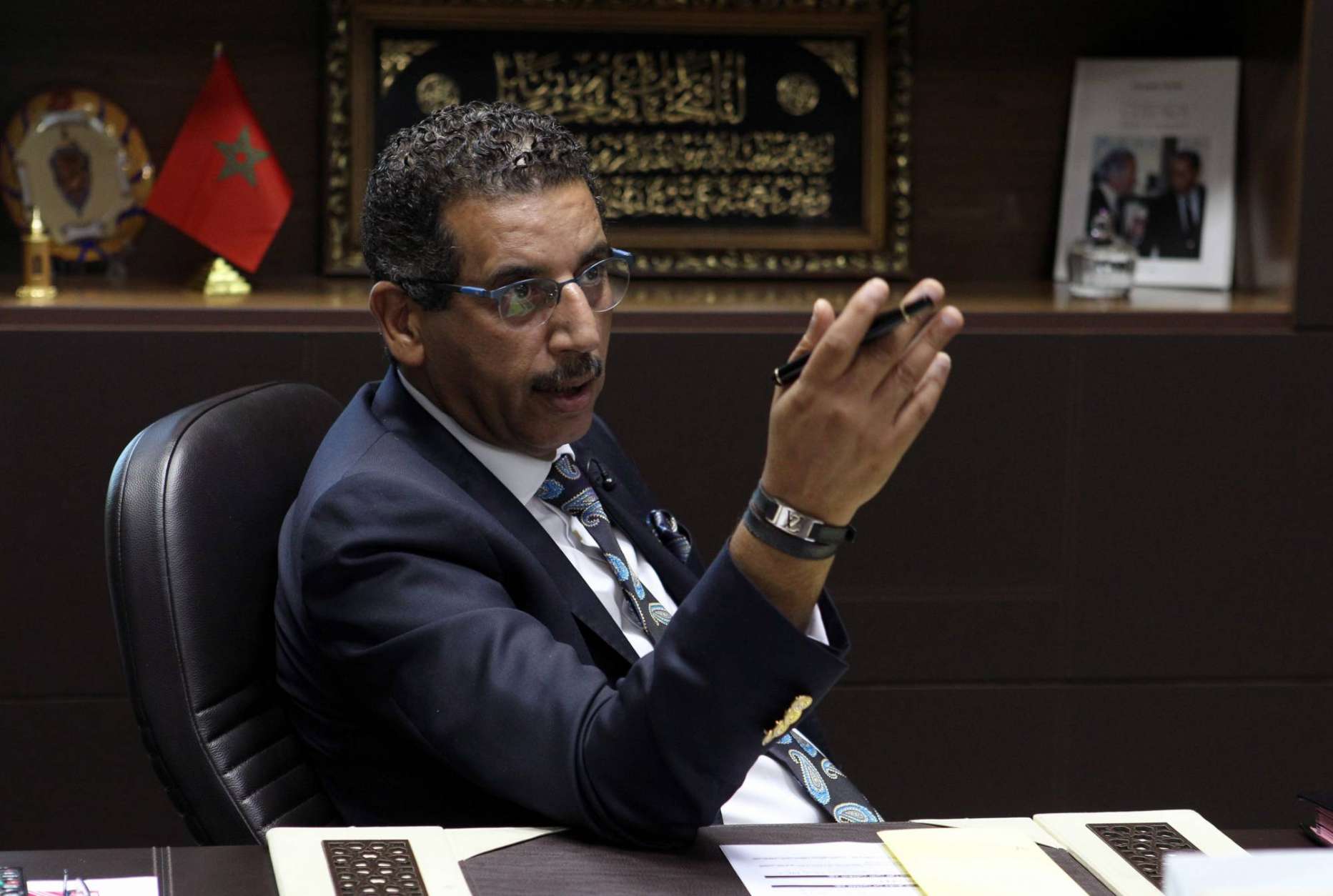abc News
By Angela Charlton, Associated Press
The director of the Central Bureau of Judicial Investigations Abdelhak Khiame gestures during an interview with The Associated Press at his headquarters in Sale near Rabat, Morocco, Tuesday, Sept. 19, 2017. Khiame says his government is working on a new strategy to track Moroccans who radicalize in Europe, as part of beefed-up counterterrorism efforts by a country that is both a key player in the global anti-extremism struggle and a source of international jihadis. (AP Photo/Abdeljalil Bounhar)
A top Moroccan security official says his government is working on a new strategy to track Moroccans who become radicalized in Europe, part of beefed-up counterterrorism efforts by a country that is both a key player in the global anti-extremism struggle and a source of international jihadis.
Preventing radicalization of Moroccans abroad is especially important after Spanish extremists with Moroccan origins carried out last month’s deadly Barcelona attacks, Abdelhak Khiame, director of an agency known as Morocco’s FBI, told The Associated Press in an interview.
“Really I was frightened by what we saw happen in Barcelona. They were all youths of Moroccan origin, their parents were Moroccan but they themselves had no connection to Morocco other than their origin and their family,” Khiame said Tuesday in his polished headquarters in Sale, near the capital, Rabat.
“Morocco’s government now must adopt another method just to control the return of those people and keep a watch on them, try and gather intelligence on them,” he added.
He would not elaborate on what surveillance measures that monitoring strategy would entail, but insisted on the importance of intelligence cooperation across borders, and said his agency is working on establishing offices in partner countries.
His agency, the Central Bureau of Judicial Investigations, is also cracking down on Moroccans returning from fighting with the Islamic State group in Syria, Iraq and Libya. It has arrested 85 men, 14 women and 27 children returnees to date, he said.
Moroccans make up an unusually large subset of IS foreign fighters — a total of 1,664 people at the agency’s last count. While larger numbers came from Saudi Arabia and Tunisia, experts say Moroccans play a sizeable role among the thousands of foreign fighters in the extremist group. So do dual Moroccan-European citizens, who were notably behind IS attacks on Paris and Brussels in 2015 and 2016.
Khiame’s agency, created two years ago to consolidate and strengthen anti-terrorism and anti-crime efforts, says it has dismantled 42 Islamic State cells and five others.
Rights groups warn that counterterrorism authorities are being overzealous and have caught up innocent bystanders in the dragnet. Thomas Galley, a Frenchman serving prison time on a terrorism financing conviction based on a confession in Arabic that he says he didn’t make and can’t understand, is among those that Human Rights Watch says is being unfairly held. Khiame insisted that the government has proof of his extremist activities.
Beyond jail and prosecution, Khiame said the government recognizes the need to solve the roots of radicalism through tackling poverty, training moderate imams and banning extremist preachers, and re-integrating former radicals.
He warned of a risk of “reverse terrorism,” or Moroccan emigrants who become radicalized in Europe then come to Morocco to stage attacks.
He cited the example of a man who embraced extremism while living in Catalonia and who was interrogated by Moroccan authorities after the Barcelona attacks, and found to be plotting violence in Morocco.
Khiame said the man had no link to the Barcelona attacks, which left 16 people dead after a partially failed attempt by a network of teens and other young Spaniards to set off explosions in the area.
Khiame’s agency helped identify the suspects and is working closely with Spain on the investigation.
The agency was also instrumental in helping French police find a leading suspect in the November 2015 attacks on the Bataclan theater, cafes and a stadium in Paris.
Rooting out radicalism is important to preserving Morocco’s reputation as a beacon of stability in a volatile region, and King Mohammed VI speaks out regularly against religious fanaticism.
Experts say Moroccans abroad are especially vulnerable because of the challenges of integration and a tug-of-war between two cultures and identities.
———
Charlton reported from Paris. Andrew Drake in Sale, Morocco and Lori Hinnant in Paris contributed.








